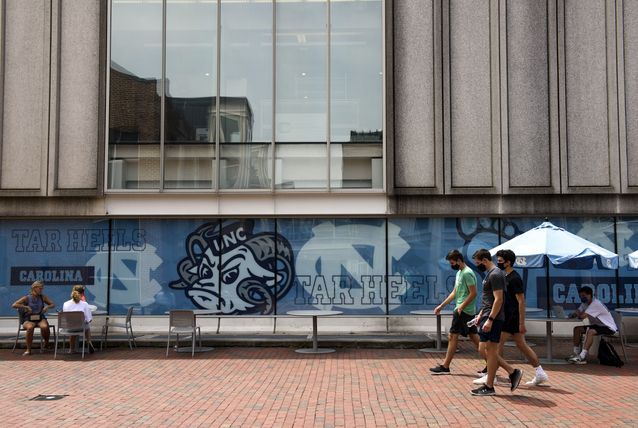
A group of students at the University of North Carolina's Chapel Hill campus distributed warning slips to their peers in a busy sunken courtyard at the campus center. The tags read, "Is diversity at UNC important to you? It's under threat."
This action was taken in anticipation of U.S. Supreme Court rulings on two affirmative action cases this spring. The orders can significantly change how race is considered in the admission process of North Carolina's leading universities and other colleges.
As many institutions address their histories of racism and strive for greater inclusion of underrepresented racial and ethnic groups, the debate around race-conscious admissions policies has emerged. This is also the case for many schools, including UNC, where students hold differing opinions regarding affirmative action, which involves considering an applicant's race in admissions to increase minority enrollment and promote a more diverse student body.
According to interviews with over a dozen students, the majority recognized the value of diversity and believed that the university should take action to address its past discrimination. Some students supported affirmative action to achieve these goals, while others felt uneasy about race factoring into UNC's already competitive admissions process. Additionally, some students avoided discussing the topic altogether due to the contentious nature of the debate.
Sarahann Bu, a Burmese Chin American sophomore who supports race-conscious admissions policies, commented that individuals might not want to avoid considering their race being a factor in university admissions. In contrast, Jacob James, the Chair of the College Republicans, stated that universities with histories of discrimination should prioritize promoting intellectual diversity rather than discriminating against white and Asian students to overcorrect. While acknowledging the significance of including Black and brown individuals, James, who is white, believed it was pessimistic to assume that these groups could not succeed without being given preferential treatment.
Zhang and other coalition leaders, including several Asian American students, noted that Asian students had expressed concerns that race-conscious admissions policies favor other minority groups at their expense. Zhang, a Chinese American, disagreed, arguing that these policies have benefited Asian university enrollment.
However, another Chinese American student, who preferred to remain anonymous, expressed discomfort with being pitted against other Asian American applicants in the admissions process due to affirmative action, despite supporting affirmative action.
In response to the lawsuit by Students for Fair Admissions, UNC and Harvard maintained that race is only one factor among many in their admissions process and that eliminating consideration of race would impede their efforts to promote a racially diverse student body. According to the National Center for Education Statistics, the implementation of affirmative action in the 1960s and 70s led to a sixfold increase in Asian American and Pacific Islander enrollment in U.S. colleges.
Zhang and other members of the Affirmative Action Coalition are concerned that this issue is creating divisions between Asian students and other communities of color.




